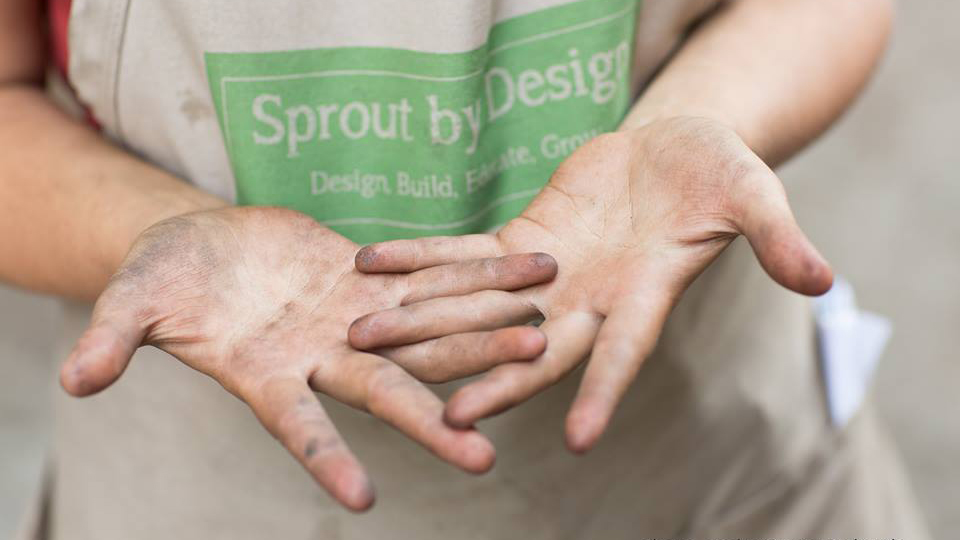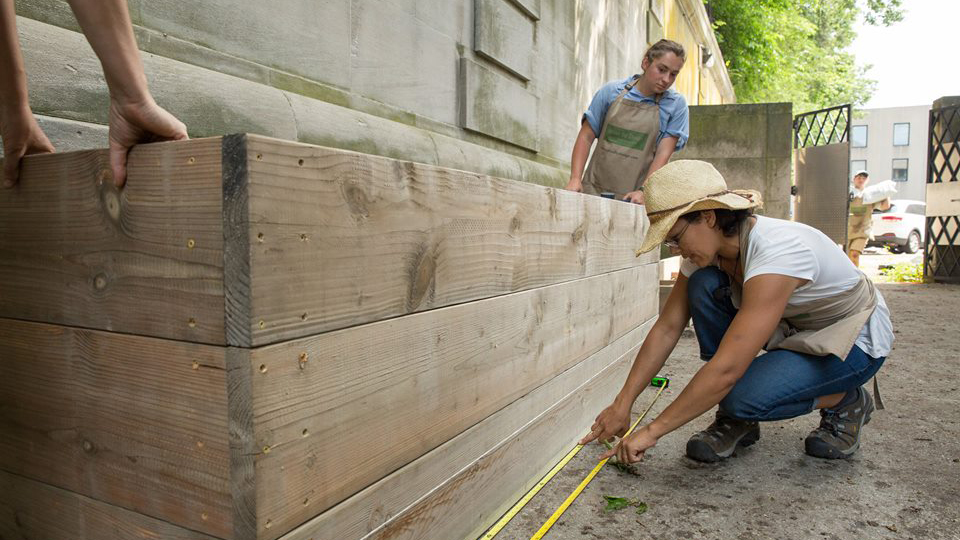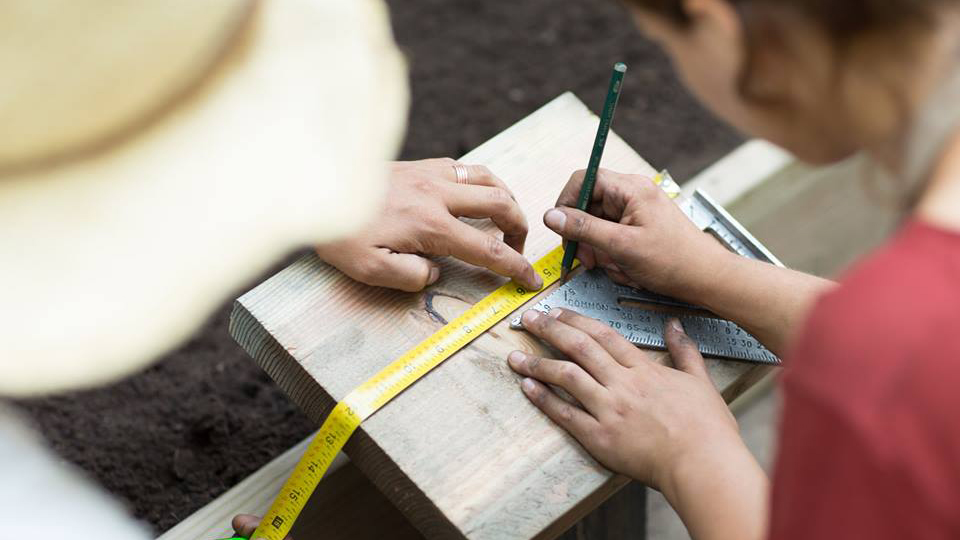How Sprout By Design Are Championing Gardens For All
“The garden is an equalizer.”
So says Leslie Dweck who, along with cofounder Ilona de Jongh, runs Sprout by Design, a contracting service based in NYC that builds urban farms “for all abilities.” The pair specialize in creating green spaces for traditionally underserved communities, like youth in detention centers, people with special needs, or formerly homeless individuals now living in transitional housing.
Each garden is crafted as a therapeutic and calming space whose structure, according to Dweck and de Jongh, promotes healthier eating, environmental stewardship, and job training opportunities within larger communities. (Their motto: “No child left indoors!”) STEM programming, problem solving, and other curriculum standards are always incorporated into both the process of construction and the garden’s final, physical shape, regardless of “whether it’s an alleyway, or on a wall,” Dweck adds.
Their work (which appears around NYC– the wheelchair accessible garden at the Brooklyn Public Library and the mini-farm at the Red Rooster office, to name a few) is an attempt to remedy some of the many health and lifestyle issues currently facing populations of all ages– a theme de Jongh became intimately familiar with as an industrial design engineer in the healthcare sector, crafting things like syringes for in vitro fertilization or insulin pumps for diabetics.
“Rather than making products for sick people, like little bandaids, I thought, ‘How can I use design in a more preventative way?'” de Jongh explains of her dramatic change of fields. “Not that they’re not important– they are important,” de Jongh quickly adds of her earlier projects. “I just knew that I could have more of an impact preventing [health issues] than fixing them.”
As women working in traditionally male-dominated fields and running a women- and minority-owned business, de Jongh and Dweck are focused on making their work inclusive (“The most important thing is to show girls they can do this!” de Jongh says of herself as a role model). The rise of garden-oriented learning is now a fairly well established approach but where Sprout by Design distinguishes itself is in how all-encompassing its work is, accessible not only to those they expect the space to be used by but also for ancillary communities.
Reflecting on their work at the Horizon Juvenile Center in the Bronx, Dweck explains, “We realized that the staff would really benefit a lot from being able to get outside, get their hands in the dirt, blow off some steam, eat a healthy snack from the garden, get fresh air. So we started trainings…This is something they can add to their resume at the end of the day.” Dweck continues, “In the detention centers, we also work with families. For example, the kids learn how to jam, and when the parents come in on family night to see what progress their children are making in the detention centers, the kids can show their parents what they learned. It’s a great ice breaker– sometimes those sessions can be challenging.”
Beyond the brick and mortar (and dirt!) gardens they build, de Jongh and Dweck build ecosystems, ones they hope heal larger systemic issues; they are firm believers in the ripple effect. As de Jongh says, “You’re not just doing it for one…Because once one can take care of themselves, they can take care of their family.”
To encourage this, Sprout by Design extends their learning and services beyond on the garden, creating programming that teaches kids business skills, explains the different facets of the farm-to-table movement, and demonstrates how the kids might eventually earn a living in that system. Sprout by Design brings in local entrepreneurs, like Beth from Beth’s Jams (who gives a session on how to make jams), or a master composter from Earth Matters (who explains how you can literally turn garbage into a living).
Chefs from Marcus Samuelsson’s restaurant also visit to cook with kids, and Sprout by Design has a partnership with Bronx Hot Sauce, a program that pays the kids for the serrano peppers they grow. (Sprout by Design also built a garden for survivors of domestic violence, and set them up with the same chile pepper growing program, so they can earn income in a quiet, therapeutic way.)
“We do everything from A to Z,” Dweck adds proudly. “We’re a one stop shop.”
As climate justice and outdoor programming increasingly become trendy parts of the mainstream, Sprout by Design emphasizes making sure that no one gets left out of the movement. Asked what advice they would give to gardeners hoping to make their space more restorative and welcoming, de Jongh emphasizes embracing the diverse needs of different visitors.
“It’s about listening with words, but also without words– observing” de Jongh reflects. Relating her own experience, she adds, “You’re working with a lot of kids who have 0.05 second attention spans. It’s really important when working with people who have issues with attention to go slow, and have a place where people can sit down. Design it in a way to be forced to slow down in a comfortable way. We’ve worked a lot with people with special needs. We’ve done a lot of very practical designing for accessible garden beds or a nook where kids or adults with autism can go and feel safe in this little bean tunnel.”
As de Jongh says of Sprout by Design’s spaces, “It’s not novelty, it’s necessity.”
To learn more about Sprout by Design, visit their website.





































